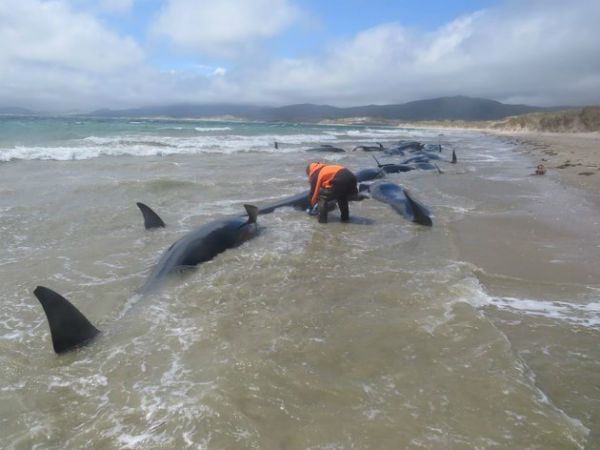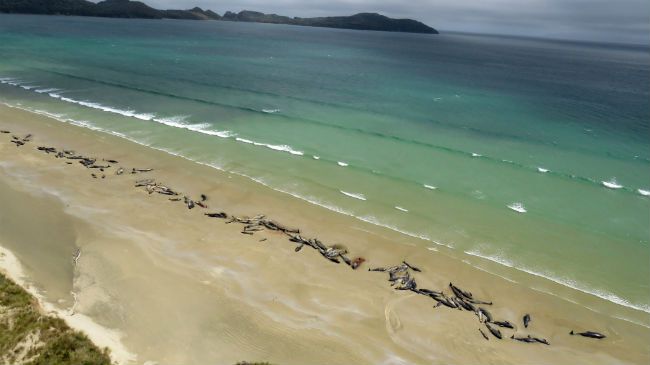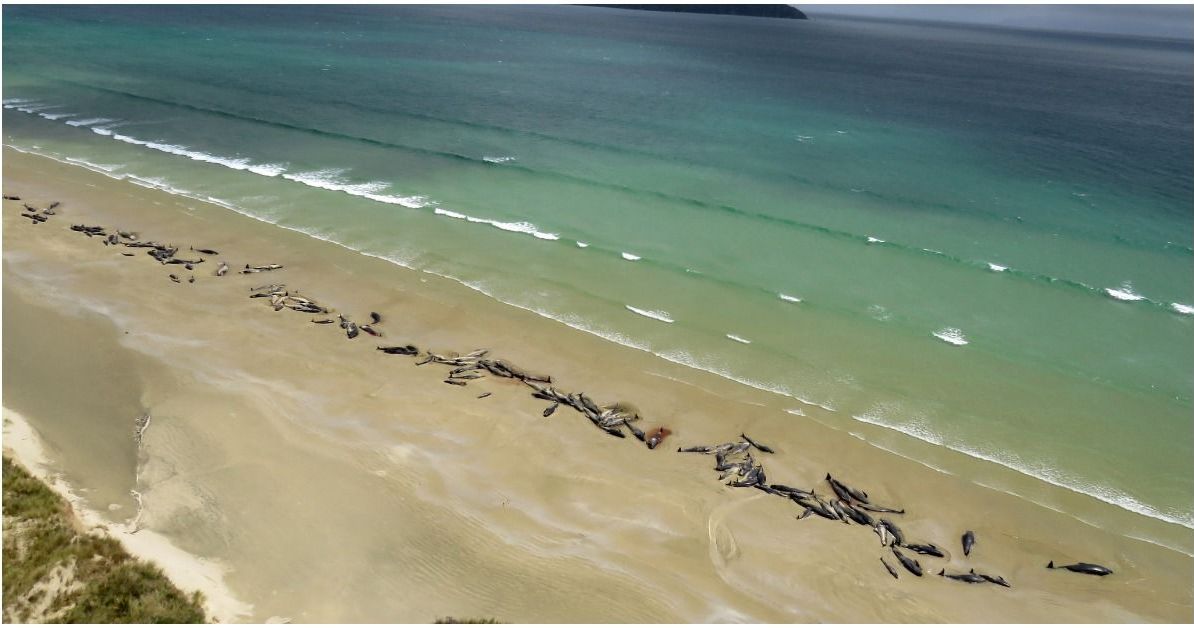Officials say up to 145 pilot whales died on an island in New Zealand last weekend, after stranding themselves on a beach.
A hiker at Mason's Bay on Stewart Island (Rakiura) was the first to spot the terrible event on Saturday, and walked more than two hours to warn the island's conservation staff.
Two pods of whales seem to have taken part in the mass beaching, with their groups landing more than a mile apart.

While workers from New Zealand's Department of Conservation were called, more than 75 of the whales had died by the time they arrived.
A representative says the department made the "heartbreaking decision" to euthanize the remaining whales, because the beach's remote location ruled out a rescue operation.
"Sadly, the likelihood of being able to successfully re-float the remaining whales was extremely low," said Rep Leppens, the island's operations manager.
Whales are thought to drive themselves onto beaches to avoid predators, or out of sickness and confusion.
As many as 145 pilot whales die after becoming stranded on a remote beach on New Zealand's Stewart Island.
— ABC News (@ABC) November 26, 2018
The country's Department of Conservation said it responds to an average 85 marine mammal strandings per year. https://t.co/pNjQaSilCD pic.twitter.com/pvZDxw8VUs
Leppens guessed from the condition of the whales that they had already been beached for a day or longer by the time they were found.
Wildlife experts say that whale strandings are common on New Zealand, but not in such large groups.
Most of the country's 85 yearly whale strandings feature just one animal, according to the Department of Conservation.

More than 250 whales died in another large-scale stranding on the country's South Island last year, despite the work of more than 500 animal rescuers who worked to "refloat" them in the ocean.
Very little is understood about whale groundings, and experts can't even agree if pushing stranded whales back out to see is the best response.
[H/T: Fox News, The New York Times]

